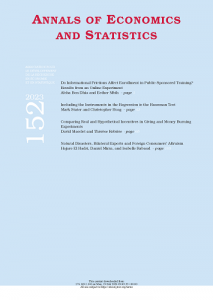
Lobbies have always been major players in the political game. Their actions range from influencing consumer beliefs to applying pressure on policymakers. This study attempts to analyze the impact of direct and indirect lobbying through public persuasion by interests groups on the stringency of the environmental policy. Following Yu (2005), we propose a micro-founded model with imperfect competition for a polluting good and that allows to derive the total welfare, government’s objective function, and resulting strategic interactions between interest groups. Our results reflect a more aggressive behavior in the public persuasion competition for the specialized green lobby. An increase in the representativeness of the green lobby leads to a more stringent environmental policy, but the opposite does not necessarily hold when the producer lobby becomes more powerful. Nevertheless, a more benevolent government sets a more stringent environmental policy only for lower values of the public’s initial environmental concern, prior to the persuasion competition.
